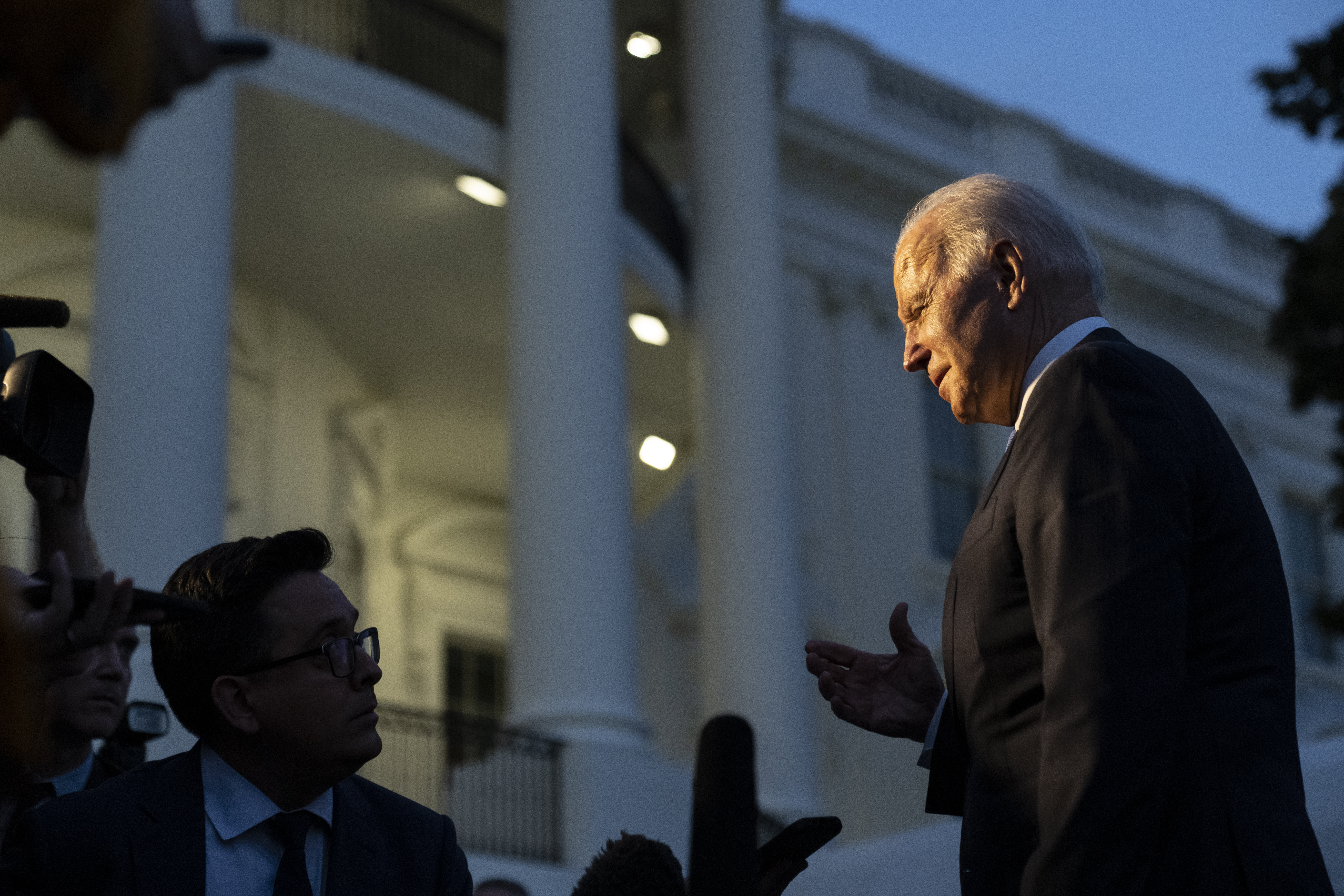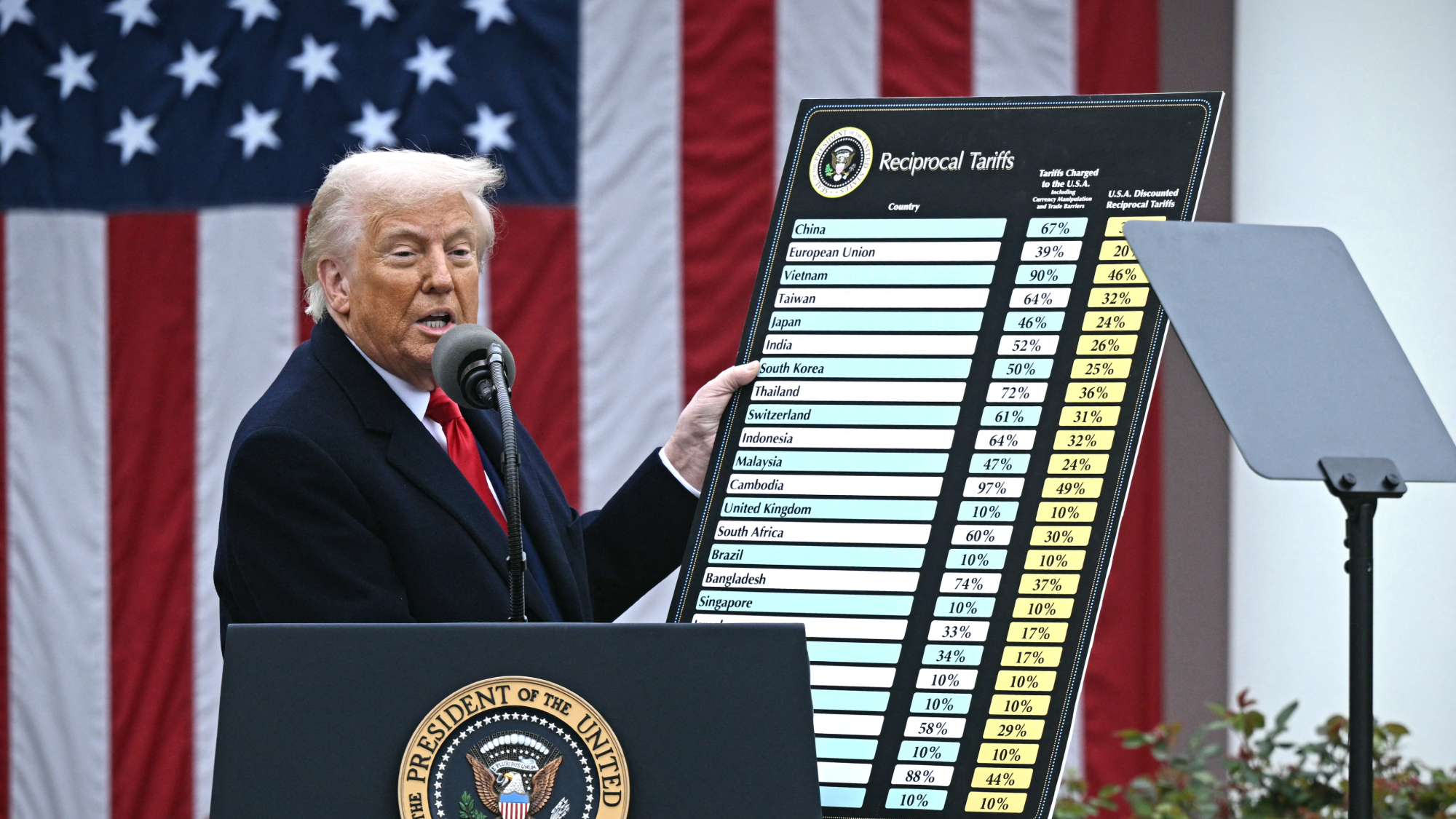As prices rise, so do risks for Biden
Soaring prices are becoming an economic and political minefield for the Biden administration

A free daily email with the biggest news stories of the day – and the best features from TheWeek.com
You are now subscribed
Your newsletter sign-up was successful
Soaring prices are becoming an economic and political minefield for the Biden administration, said Megan Cassella at Politico. The cost of goods and services continued to tick higher in September and is now up 5.4 percent from a year earlier. "The massive price spikes to travel services, used cars, and other goods" tied to the economy's reopening this summer "were initially dismissed as fleeting phenomena." But ongoing supply-chain disruptions and a deepening labor shortage combined with unleashed consumer demand is looking like a recipe for disaster as the United States heads into the holiday season. "Concern about the potential political fallout" is growing as more "voters feel the squeeze of elevated prices" at the grocery store and gas pump.
"It's hard to think of anything more unpopular with the electorate than paying a lot for gas or food," said David Harsanyi at New York Post. "Biden has waved away inflation concerns on numerous occasions"; the administration claims that the price hikes we are seeing are "transitory." Meanwhile, the Department of Energy says heating bills could "jump as much as 54 percent compared with last winter." Democrats are so "unmoored from economic reality" that they are still pushing energy policies that will send prices even higher. For older people who remember the 1970s, inflation conjures images of "instant wealth destruction." The GOP "sees an opening" here, said Gabriel Rubin and Catherine Lucey at The Wall Street Journal. "This is going to be really bad for the American people, and I'm going to tell you that Democrats own it," said Rep. Tom Emmer (R.-Minn.).
Just stop it with 1970s analogies, said Ed Kilgore at New York magazine. Sure, Republicans want to "compare every Democratic president to Jimmy Carter." But the economic reality was that in 1979, the inflation rate was 13.3 percent and interest rates were 11 percent jumping to 20 percent in 1980. We're at less than 1 percent interest today. I'm no longer as certain that inflation is transitory, said Paul Krugman at The New York Times, but raising interest rates and slowing down the economy "based on what we know now would be a big mistake." If prices keep rising, bringing them back down again "could be painful — though doable." But putting on the brakes "to head off an inflation problem that proves exaggerated" could damage the economic recovery "in ways that are hard to reverse."
The Week
Escape your echo chamber. Get the facts behind the news, plus analysis from multiple perspectives.

Sign up for The Week's Free Newsletters
From our morning news briefing to a weekly Good News Newsletter, get the best of The Week delivered directly to your inbox.
From our morning news briefing to a weekly Good News Newsletter, get the best of The Week delivered directly to your inbox.
"The real question is how American families and businesses react to this new era of uncomfortable inflation," said Heather Long in The Washington Post. The longer prices remain high, the more likely it is that habits will start to change. Consumers are already "getting spooked by higher prices" for houses and cars. And there are "early signs of wage-price spirals." Whitney Reitz, who operates a taco franchise in Wichita, raised menu prices twice this year after bumping starting wages from $8 to $12 an hour to attract workers. She thinks the cycle isn't over. "A local restaurant just posted 'Now hiring! Starting hostess at $20 an hour,'" Reitz said. "Just seeing that in writing put a little fear in me."
This article was first published in the latest issue of The Week magazine. If you want to read more like it, you can try six risk-free issues of the magazine here.
A free daily email with the biggest news stories of the day – and the best features from TheWeek.com
-
 The 8 best TV shows of the 1960s
The 8 best TV shows of the 1960sThe standout shows of this decade take viewers from outer space to the Wild West
-
 Microdramas are booming
Microdramas are boomingUnder the radar Scroll to watch a whole movie
-
 The Olympic timekeepers keeping the Games on track
The Olympic timekeepers keeping the Games on trackUnder the Radar Swiss watchmaking giant Omega has been at the finish line of every Olympic Games for nearly 100 years
-
 The ‘mad king’: has Trump finally lost it?
The ‘mad king’: has Trump finally lost it?Talking Point Rambling speeches, wind turbine obsession, and an ‘unhinged’ letter to Norway’s prime minister have caused concern whether the rest of his term is ‘sustainable’
-
 The billionaires’ wealth tax: a catastrophe for California?
The billionaires’ wealth tax: a catastrophe for California?Talking Point Peter Thiel and Larry Page preparing to change state residency
-
 Bari Weiss’ ‘60 Minutes’ scandal is about more than one report
Bari Weiss’ ‘60 Minutes’ scandal is about more than one reportIN THE SPOTLIGHT By blocking an approved segment on a controversial prison holding US deportees in El Salvador, the editor-in-chief of CBS News has become the main story
-
 ‘They’re nervous about playing the game’
‘They’re nervous about playing the game’Instant Opinion Opinion, comment and editorials of the day
-
 Memo signals Trump review of 233k refugees
Memo signals Trump review of 233k refugeesSpeed Read The memo also ordered all green card applications for the refugees to be halted
-
 Tariffs: Will Trump’s reversal lower prices?
Tariffs: Will Trump’s reversal lower prices?Feature Retailers may not pass on the savings from tariff reductions to consumers
-
 Has Zohran Mamdani shown the Democrats how to win again?
Has Zohran Mamdani shown the Democrats how to win again?Today’s Big Question New York City mayoral election touted as victory for left-wing populists but moderate centrist wins elsewhere present more complex path for Democratic Party
-
 Millions turn out for anti-Trump ‘No Kings’ rallies
Millions turn out for anti-Trump ‘No Kings’ ralliesSpeed Read An estimated 7 million people participated, 2 million more than at the first ‘No Kings’ protest in June